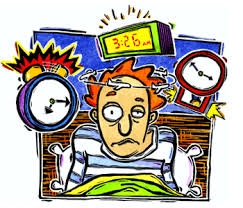 So that explains it, my cortisol levels are out of wack.
So that explains it, my cortisol levels are out of wack.From The Frontel Cortex...
The ability to trapeze from time zone to time zone is an invention of the late 20th century. Unfortunately, the brain is an organ of routine, equipped with a stubborn circadian clock. We are wired to expect a 24 hour day, and when our day extends far beyond that, the result is a set of symptoms that remind us we are far from home.
Unfortunately for the globalized world, jet lag is one of those things that knocks us off balance. The end result is a large stress response.
Cho found that the cabin crew given fewer days to get over their jet lag showed higher levels of stress hormone, impaired spatial memory and temporal lobe atrophy. These upsetting results built on Cho's earlier work demonstrating that transmeridian travel leads to much higher levels of stress hormone (cortisol), both before, during and after the long flight. This implies that the brain is bracing for its ordeal, preparing itself to deal with the arduous task of resetting its circadian clock.
No comments:
Post a Comment